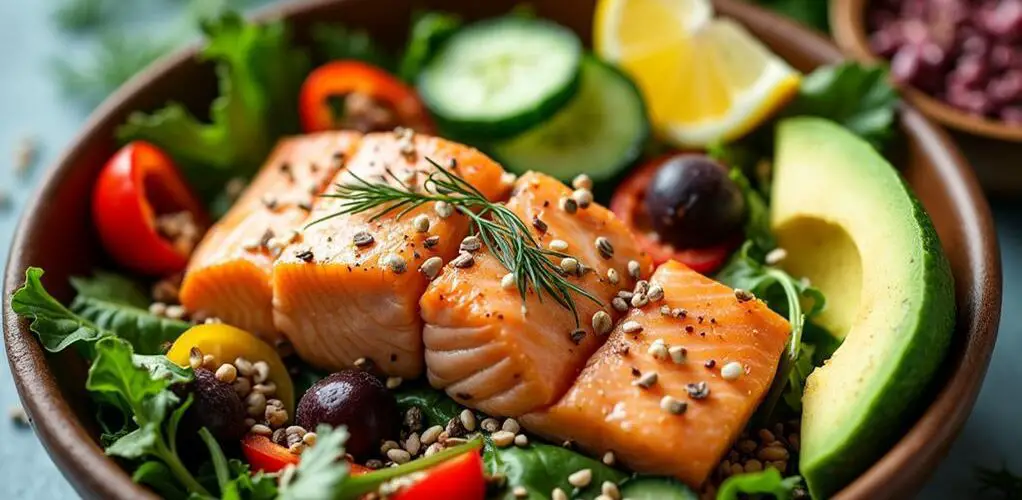
Preventing gallstones while on a keto diet involves strategic dietary choices. First, choose healthy fats like olive oil, avocados, and omega-3 rich fish to reduce the risk of gallstones and support heart health. Second, incorporate fiber-rich foods such as broccoli, spinach, chia seeds, and flaxseeds to aid digestion and manage cholesterol levels. Finally, maintain proper hydration by drinking 8-10 cups of water daily to guarantee bile remains adequately diluted, thereby preventing cholesterol supersaturation. By adhering to these guidelines, you can greatly reduce the likelihood of developing gallstones while following a ketogenic diet. Learn additional strategies by continuing further.
Key Takeaways
- Choose healthy fats like olive oil and avocado to support heart health and reduce gallstone risk.
- Incorporate fiber-rich foods such as broccoli and chia seeds to manage cholesterol levels and promote bile flow.
- Stay hydrated by drinking 8-10 cups of water daily to prevent bile supersaturation and support gallbladder function.
- Limit intake of trans fats from processed foods and saturated fats from red meat to maintain lower cholesterol levels in bile.
- Include Omega-3 sources like salmon and mackerel to promote overall health and reduce inflammation.
Choose Healthy Fats
When following a keto diet, choosing healthy fats is essential to not only support your heart health but also to mitigate the risk of developing gallstones. Monounsaturated fats, such as those found in olive oil and avocado, offer significant benefits. These fats are known to support heart health and are less likely to contribute to gallstone formation compared to saturated fats.
Incorporating omega-3 sources, such as fatty fish like salmon and mackerel, can further promote overall health and reduce inflammation, adding another layer of protection. The keto diet shows promise in hypertension management, which can indirectly benefit gallstone prevention by reducing systemic inflammation.
To avoid the adverse effects associated with unhealthy fats, trans fats found in processed foods should be strictly limited. These fats can increase cholesterol levels and increase the risk of gallstones.
Additionally, it's prudent to limit the intake of saturated fats from red meat and full-fat dairy products, as excessive consumption can lead to higher cholesterol levels in bile, which is a known risk factor for gallstone formation.
Plant-based fats from nuts and seeds offer a nutritious alternative. These fats not only contribute to a balanced diet but also help maintain lower cholesterol levels, thereby reducing the risk of gallstones.
Incorporate Fiber-Rich Foods
To effectively reduce the risk of gallstone formation on a ketogenic diet, incorporating fiber-rich foods is essential. Consuming non-starchy vegetables such as broccoli, spinach, and kale can greatly enhance digestive health by promoting regular bowel movements and supporting bile flow. These vegetables are low in carbohydrates, making them ideal for a ketogenic dietary approach.
Additionally, arugula and asparagus are excellent choices due to their low carb content and high nutrient density.
Soluble fiber sources like chia seeds and flaxseeds play a vital role in managing cholesterol levels, thereby reducing the risk of cholesterol gallstones. Including these seeds in your diet can be an effective strategy for maintaining overall gallbladder health.
Although legumes are typically restricted in a strict ketogenic diet, they can be included in moderation to boost fiber intake. Legumes are high in fiber and can be a beneficial addition to a balanced keto meal plan, provided their carbohydrate content is carefully managed.
Avocados, a staple in the keto community, offer a dual benefit of healthy fats and considerable fiber content. Regular consumption of avocados can aid in improving bile flow and enhancing gallbladder function.
For those struggling to meet their daily fiber requirements, fiber supplements can be a practical solution. Aim for a daily fiber intake of at least 25 grams for women and 38 grams for men to support ideal digestive health and reduce the risk of gallstones.
Stay Hydrated
Staying hydrated is a fundamental aspect of maintaining gallbladder health, especially when following a ketogenic diet. Dehydration can markedly increase the risk of gallstone formation by altering bile composition and impairing gallbladder function.
Maintaining an adequate intake of electrolytes such as sodium, potassium, and magnesium is also essential, as they play a considerable role in fluid balance and can help prevent muscle cramps and headaches. Adequate water intake is vital to dilute bile, thereby preventing the supersaturation of cholesterol that can lead to gallstones. This is particularly important in the context of the high-fat intake typical of keto diets.
Aiming for at least 8-10 cups (64-80 ounces) of water daily is recommended, though this amount should be adjusted based on exercise levels and climate to guarantee ideal hydration. In addition to water, incorporating electrolyte-rich beverages such as bone broth or using electrolyte supplements can support hydration and help maintain proper bile flow.
This dual approach addresses both fluid intake and electrolyte balance, which are important for overall gallbladder health.
Monitoring urine color is a practical hydration tip: pale yellow urine typically indicates good hydration, whereas dark yellow suggests a need for increased fluid intake. By following these hydration tips, individuals on a keto diet can better manage their risk of gallstone formation while supporting overall digestive health.
Frequently Asked Questions
Does a Keto Diet Cause Gallbladder Issues?
A ketogenic diet can potentially cause gallbladder issues due to increased cholesterol in bile and altered bile composition, impacting keto digestion. Monitoring dietary fat intake and ensuring balanced nutrition is essential for maintaining gallbladder health.
How Do I Do Keto Without a Gallbladder?
To successfully follow keto meal planning without a gallbladder, focus on smaller, frequent meals with easily digestible healthy fats like avocado and olive oil. Incorporate digestive enzymes and increase low-carb vegetable fiber to support compromised gallbladder function.
How Do You Prevent Gallstones on a Low Calorie Diet?
To prevent gallstones on a low-calorie diet, incorporate healthy fats like olive oil and avocados to support gallbladder health. Prioritize high-fiber foods, guarantee regular meal times, stay hydrated, and aim for gradual weight loss.
How Can You Protect Yourself From Gallstones?
To protect yourself from gallstones, guarantee a balanced intake of healthy fats, incorporate plenty of dietary fiber from non-starchy vegetables, and avoid rapid weight loss. Regular meals and proper hydration also play essential roles in gallbladder health.
Conclusion
In summary, preventing gallstones while adhering to a ketogenic diet can be effectively managed by selecting healthy fats, incorporating fiber-rich foods, and maintaining adequate hydration. These strategies support ideal gallbladder function and reduce the risk of gallstone formation. By focusing on these evidence-based recommendations, individuals can continue to reap the benefits of a ketogenic diet while minimizing potential complications associated with gallstones. Practical implementation of these tips is essential for long-term health and well-being.

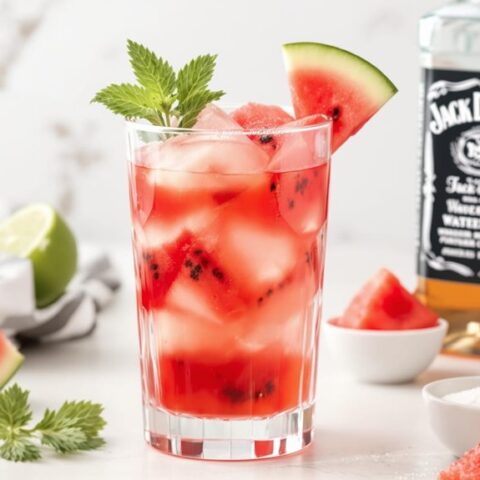
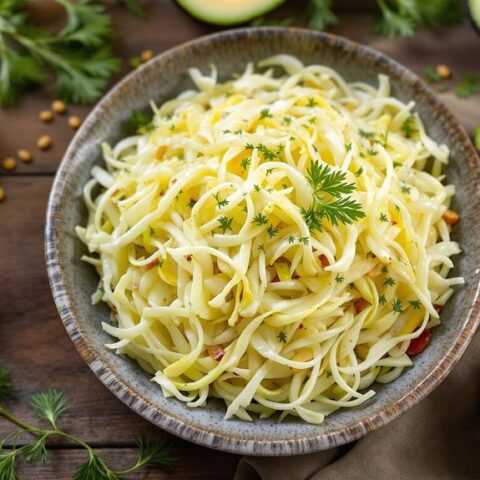
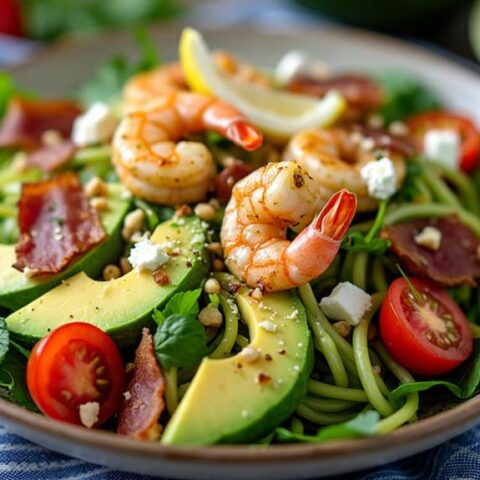
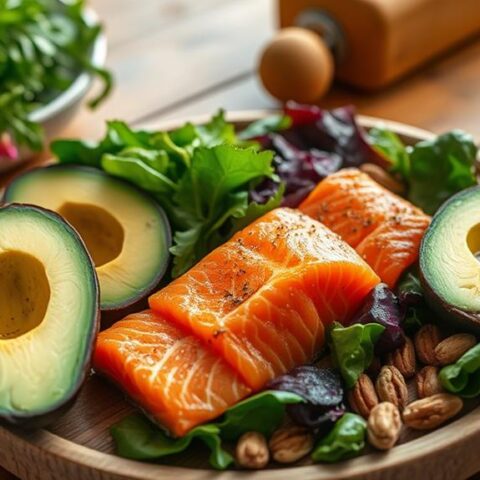
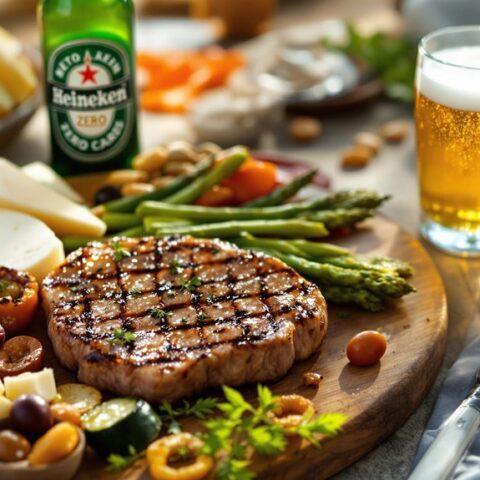




No Comments